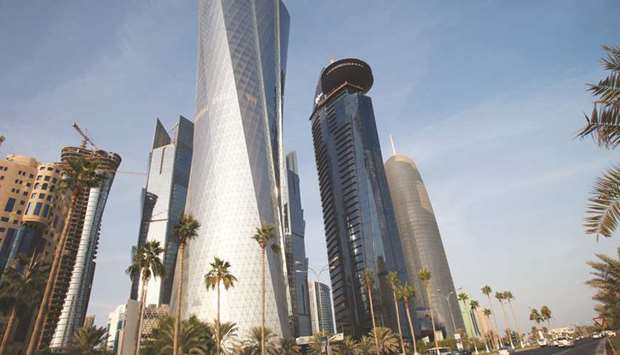Qatar’s economic growth will remain “robust” as hydrocarbon production and exports are unaffected, and work on the FIFA 2022 World Cup-related infrastructure projects progresses without major delays, according to BMI, a Fitch company.
“We still expect robust expansion in the hydrocarbon and infrastructure segments over the quarters ahead,” BMI said, forecasting Qatar’s real growth to be 2.9% this year and 3.2% in 2018.
Earlier, it had said robust outlook beckons Qatari construction industry, notwithstanding the economic blockade by the siege countries.
In the latest report, BMI viewed that the impact of the Gulf diplomatic spat and resultant blockade on Qatar’s overall economic growth would only be “moderate”.
Expecting hydrocarbons to see production expand 1.6% annually on average over 2017-18, with no restrictions on the exports by Saudi Arabia and its allies; it said oil prices also appear set to remain above Qatari fiscal and external breakeven levels.
Given its vast foreign reserves, Doha has both the willingness and ability to absorb costs associated with the re-organisation of imports and maintain liquidity at comfortable levels,” it said, adding consequently, “we do not expect the Qatari economic activity to be hampered by sharp spikes in inflation or restricted credit availability.”
Expecting the Qatari government to make efforts to ensure infrastructure projects linked to the 2022 FIFA World Cup and the national diversification programme progress without substantial delay, BMI said prior to the outbreak of the crisis, Doha had already taken several steps to secure the ready availability of building materials (by building up reserves of cement), and following the imposition of border restrictions, it has managed to reorganise supply chains through Kuwait, Oman, Turkey and Iran.
Historic data on cement imports shows the government in 2015 imported a much larger quantity than needed — enough to cover roughly two months’ demand in 2016 — to cover the gap between production and consumption, prompted by the desire to temper inflation in view of the negative impact on the supply chain after a similar diplomatic rift in 2014.
In tandem with the rise in import volumes, BMI had said it has seen efforts to increase the cement storage capacity take shape with the state-owned Qatar Primary Materials Company inaugurating two cement silos in December 2016, increasing Qatar’s storage capacity by 60,000 tonnes.
“As such, our infrastructure team expects Qatar’s construction sector to continue growing at a robust rate of 10.8% annually on average over 2017-18,” the latest report said.
Highlighting Doha’s indicated willingness to absorb much of the added costs generally associated with the reorganisation of imports through alternative air and sea routes, in order to avoid sharp spikes in inflation; it said it has plenty of space to do so, given its exceptionally strong fiscal position.
“Consequently, we do not expect to see prices rise to the extent that they significantly impact private consumption and investment levels,” BMI said, forecasting inflation to average 2.8% in 2017 and 3.1% next year.

Skycrapers stand beside a highway on the city skyline in Doha. u201cWe still expect robust expansion in the hydrocarbon and infrastructure segments over the quarters ahead,u201d BMI said, forecasting Qatar’s real growth to be 2.9% this year and 3.2% in 2018.


